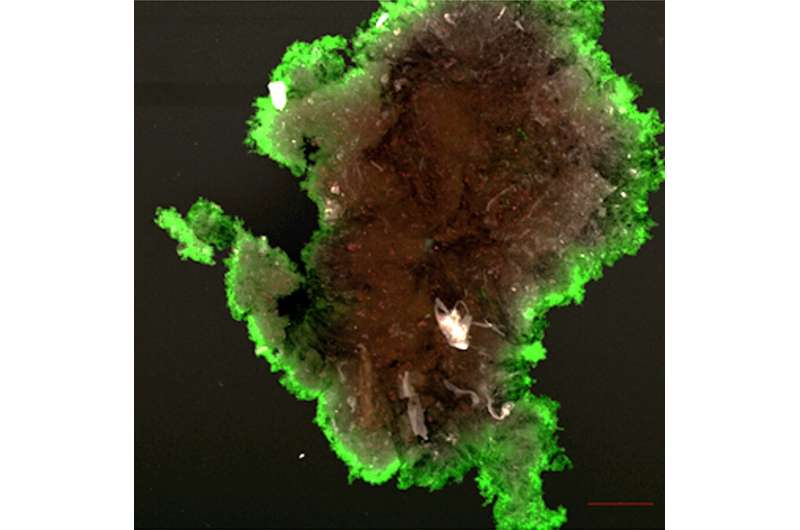This article has been reviewed according to Science X's editorial process and policies. Editors have highlighted the following attributes while ensuring the content's credibility:
fact-checked
trusted source
proofread
Fiber discovery could shape better gut health

Changing the structure of a dietary fiber commonly found in a range of food products has been found to promote healthy gut bacteria and reduce gas formation, a finding that could help people with intolerances to fiber and irritable bowel conditions.
A team of scientists from the University of Nottingham, Quadram Institute Biosciences and the University of East Anglia examined psyllium, a type of natural dietary fiber that is used in a range of products including cereals and yogurts. They showed that the physical state of the fiber has a major impact on gas production which often is linked to bowel discomfort. The findings have been published in Food Hydrocolloids.
The team performed in vitro fermentation experiments seeded with human stool. They conducted analysis of fermentation products and evaluated the impact of different structures on the broad categories of microorganisms.
Dr. Gleb Yakubov, Associate Professor in Food Physics at the University of Nottingham was one of the lead researchers on the study. He explains, "Although fiber is an important part of any diet, for many people it can cause bowel discomfort and for people with IBS or IBD fiber can be a trigger. This is because some foods cause bacterial interactions in the gut that create gas that can lead to pain or discomfort. Our study shows that the physical state of the fiber has a major impact on gas production by creating beneficial compounds that promote the creation of the good bacteria in the gut."
Psyllium fiber comes from the seeds of Plantago ovata plants, known by many common names such as blond plantain. These seeds produce a jelly-like material called mucilage, which comes in a variety of shapes and forms and these feature long-chain sugars, called polysaccharides. It is these polysaccharides that lead to the production of beneficial short-chain fatty acids that positively contribute to gut health and systemic metabolism. This study shows that different physical states of fiber impact the way dietary fiber breaks down and that microbes "colonize fiber" during fermentation.
"These findings show that there are new opportunities for designing targeted structures using psyllium, either through seed processing or selective breeding, to achieve new fiber materials with clear clinical benefit above that of unrefined psyllium powders aiding in the treatment of gastrointestinal discomfort," saysYakubov.
Research is already underway at the University if Nottingham with the School of Medicine to use this new knowledge to create and test psyllium-mimicking materials as medical nutrition which could provide a source of fiber for people with some bowel conditions. Trials will be starting in the Spring.
More information: Hannah C. Harris et al, The impact of psyllium gelation behaviour on in vitro colonic fermentation properties, Food Hydrocolloids (2023). DOI: 10.1016/j.foodhyd.2023.108543
Provided by University of Nottingham



















